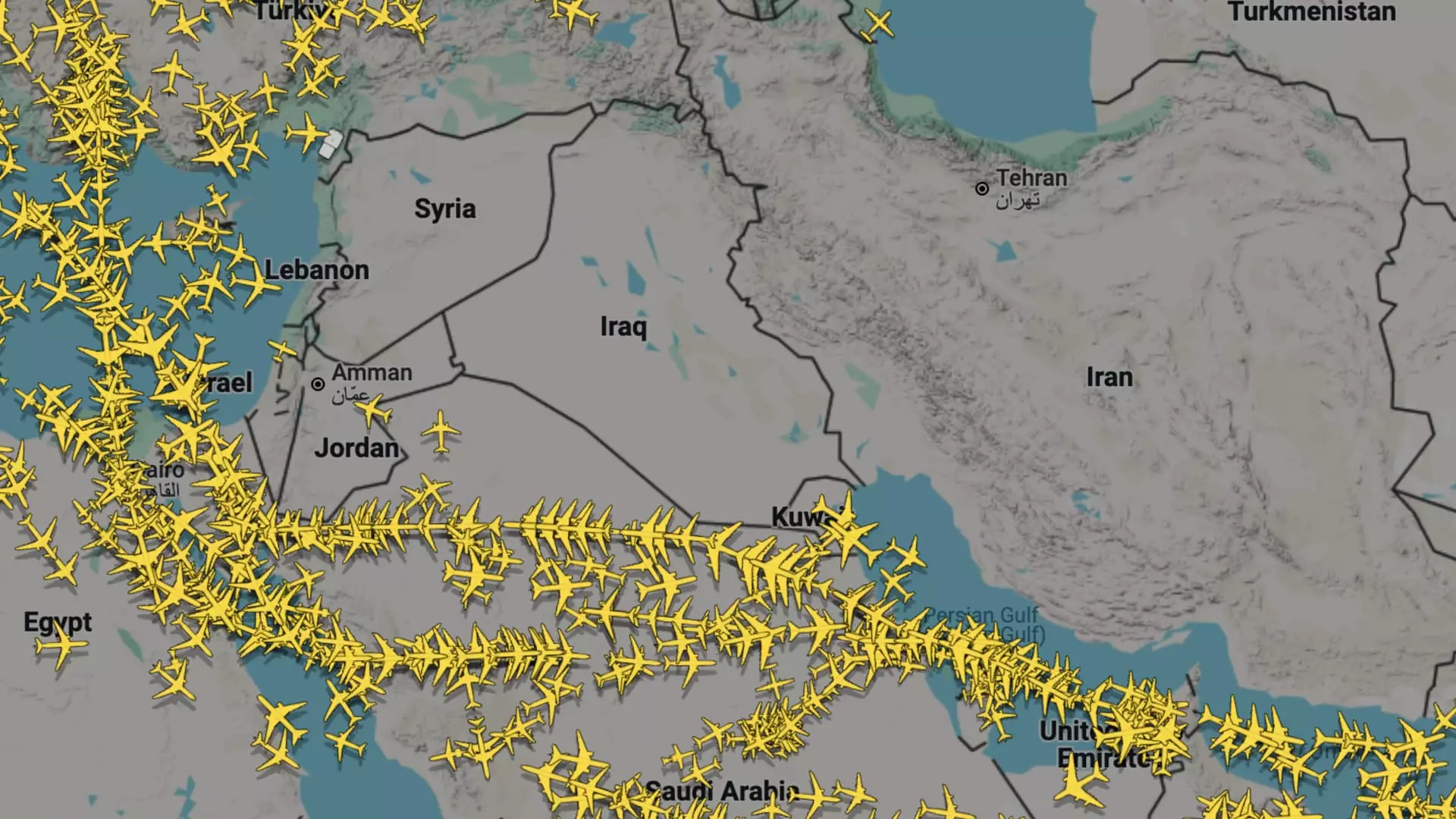In a world where commercial air travel is a lifeblood for many economies, it is alarming to witness the increasingly pervasive impacts of geopolitical tensions. With Israel’s recent missile strike on Iran prompting a flurry of flight cancellations and diversions, airlines are being forced to rethink their operations in a volatile region. The instinct of airline CEOs and international regulators is to prioritize safety, but by doing so, they inadvertently become embroiled in the larger narrative of conflict, affecting millions of passengers and interests across the globe. This scenario demonstrates just how fragile the interconnected web of modern air travel has become in the face of armed conflict.
Airlines at the Crossroads
Major airlines like Delta Air Lines and United Airlines have made the tough decision to suspend their services to Tel Aviv after encountering the new security realities. This is not merely an operational decision, but rather a reflection of the complex socio-political landscape. The pattern of reprioritizing routes away from danger zones underlines an essential truth: the safety of travelers is now pawned against the unpredictable chessboard of international relations.
Furthermore, the indefinite suspension of services by Israeli carrier El Al raises unsettling questions regarding the resilience of national airlines in times of crisis. Historically, the Middle East has been a hotbed of conflict, but airlines had bolstered a façade of normalcy by reinforcing their flight routes. Yet, with every missile launched and every drone deployed, that façade crumbles, leaving in its wake uncertainty and apprehension for travelers planning to visit the region.
A Growing Hesitation Among Travelers
The psychological impact on travelers should not be underestimated. The aviation disruptions become a grim reminder that flying is not just about reaching your destination, but also about navigating a world ripped apart by strife. Airlines have resorted to offering travel vouchers and waiving change fees but, in doing so, they merely scratch the surface of the problem. Passengers who take to the skies are increasingly becoming wary; a flight meant to be a conduit for joy and exploration is now laden with the weight of anxiety and fear.
The emotional toll extends beyond mere inconvenience. Business trips, family reunions, and vacations are all tarnished by the omnipresent threat of sudden cancellations and diversions. People should be able to travel without the grim worry of potential conflict hovering just over the horizon.
Rethinking Global Air Travel
The current crisis pushes us toward a more profound introspection: Is our reliance on air travel sustainable in such a precarious geopolitical climate? Perhaps it’s time for airlines, travelers, and governments alike to rethink how we engage with regions steeped in unrest. There’s an urgency for a global dialogue that prioritizes not only security but also the human lives that are intertwined with these illustrious routes.
As the world hunkers down, the aviation sector can no longer afford to treat these conflicts as mere logistics challenges. They’re a cry for a new order where the value of safety can be effectively balanced with the need for travel and connectivity. Navigating the future of air travel demands not just vigilance, but a deep commitment towards fostering a more peaceful world.


Leave a Reply